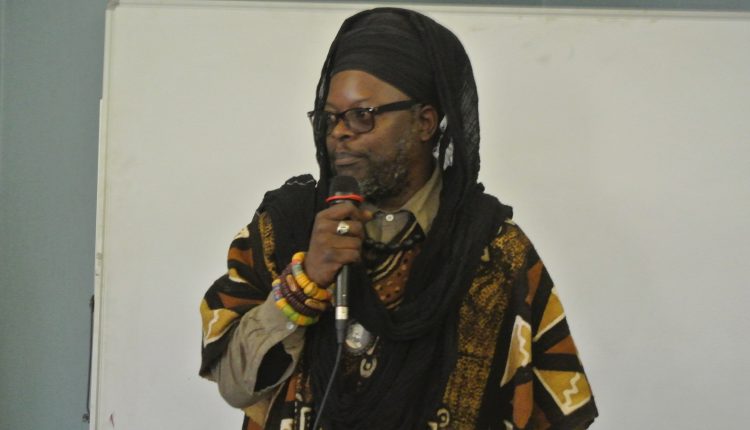Fifth Leonard Howel Memorial Lecture
By Karabo Ntanzi
16 June 2019
June 16 means double commemoration forthe Rastafarian community as they also observe the birth of Leonard Percival Howell, founder of the Rastafarian Movement. Howell’s memorial lecture was held at Mayibuye Cultural Centre. It was attended by community members, including Lords, Priests, Queens (a way of addressing each other) from Cape Town, parts of the Free State, Mpumalanga, and Northern Cape Province.
The Rastafarian United Front resolved that Kimberley would be the designated town to host this auspicious annual event because, according to the founder of the movement, Kimberley is where the seed of Rastafarian was planted. The Afro Attic Church (ACC), the first Rastafarian Church in the world, was built in Nyambane Street, Greater No2, Kimberley but was demolished in 1927.
The President of the movement, Thau-Thau presented the lecture. Leonard was born in May Crawle River, Jamaica, in 1886 to an Anglican family. He traveled to many places as a youngster, including Panama and New York.
In 1933, he became one of the first preachers for the Rastafarian Movement. His preaching included portent for the African diaspora, asserting that Haile Selassie was the “Messiah returned to earth.” He also published a book called “The Promised Key,” which resulted in his arrest. He was tried for sedition and jailed for two years in Jamaica. Despite his imprisonment, the movement grew.
After serving his sentence, Leonard continued with his sermons of an anti-colonial message promoting black power. He was often at loggerheads with state authorities, including churches. The colonial authorities hoped to destabilise Leonard’s growth and kill the movement. On the contrary, his followers increased, and the movement expanded, reaching many blacks worldwide.
Leonard Percival Howell formed a town or commune called Pinnacle in Saint Catherine Parish, a famous Rastafarian area. Leonard died in February 1982 in Kingston, Jamaica. Interestingly, unlike his Rastafarian community, he did not wear dreadlocks.
President Thau-Thau commended the influence of Kimberley’s movement because, at some stage, all community members, not only Rastafarians, used to say “I Rhee,” a Rastafarian greeting meaning hello. He explained that Rastafarian is in transit, and some people believe Rasta will free them from colonisation. Thau-Thau explained, “to experience Rastafarian, you must live it to feel it.”
The celebration continued with discussions on various subjects around the movement, including a concern around the movement’s lack of growth. There is a palpable fear that the Rastafarian movement will be extinct one day as it has stagnated. The festivities continued with refreshments, music, and poetry sessions. There were members selling books, essential oils, sharmas, and headgears.


Comments are closed.